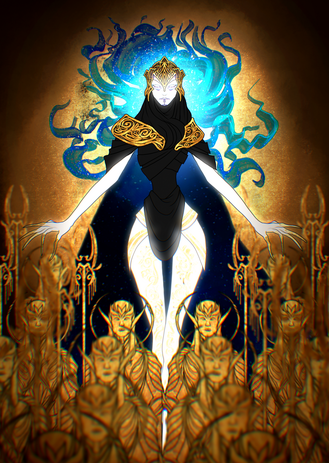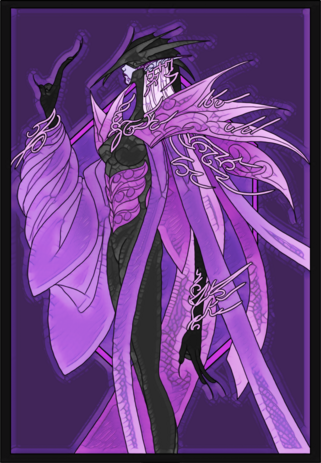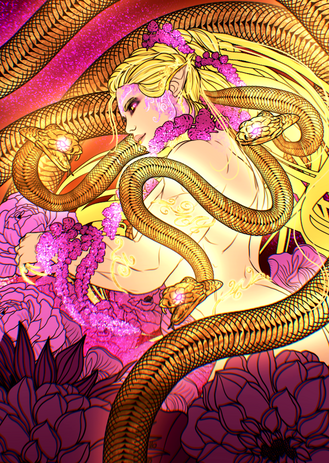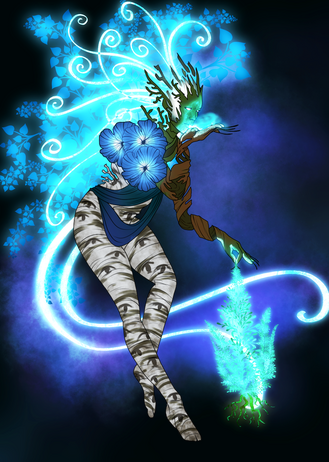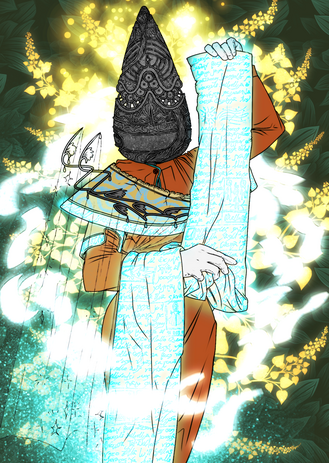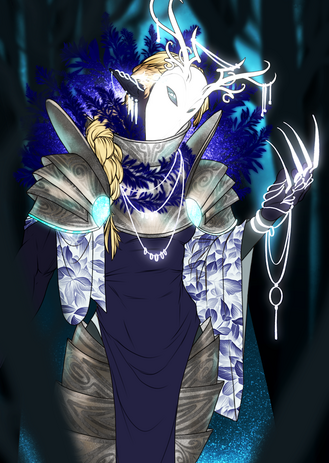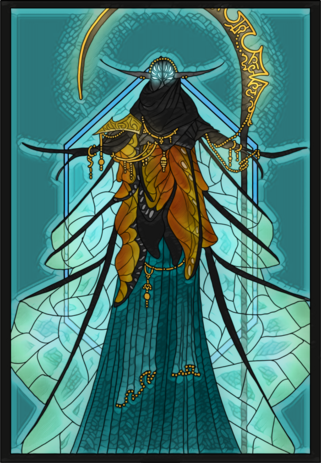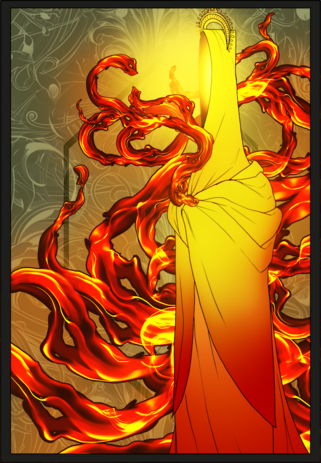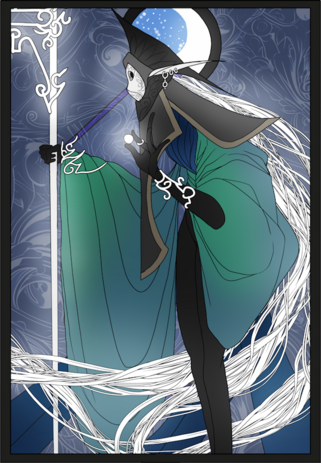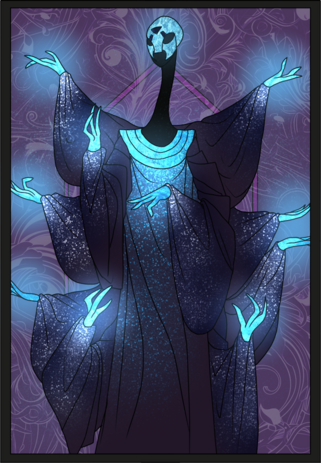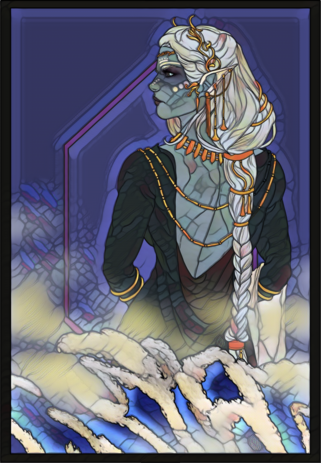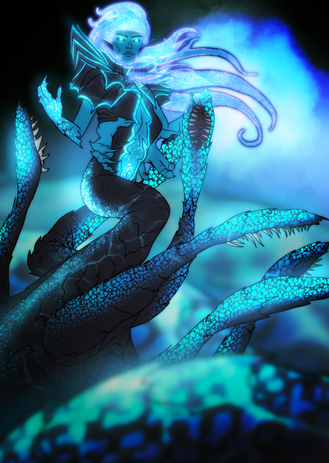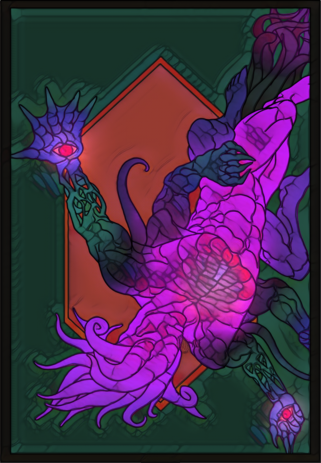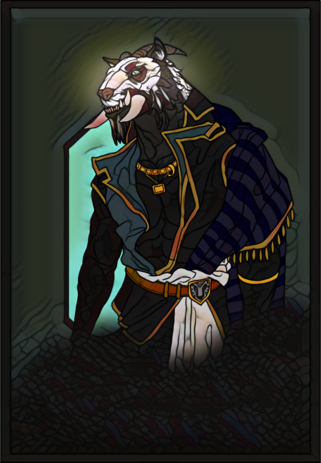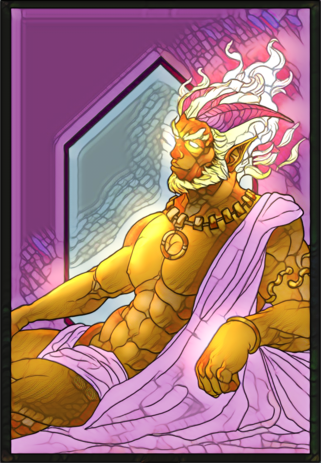Estelley: Difference between revisions
No edit summary |
No edit summary |
||
| Line 33: | Line 33: | ||
File:Ammuloa.png|''Ammuloa, God of the Deathwill'' | File:Ammuloa.png|''Ammuloa, God of the Deathwill'' | ||
File:Avinloo.png|''Avinla, Goddess of the Lifespark'' | File:Avinloo.png|''Avinla, Goddess of the Lifespark'' | ||
File: | File:Sdafafafafas.png|''Leyon, God of Farsight and Keys.'' | ||
</gallery> | </gallery> | ||
* '''Bard''' (pronounced Bard) is the god of justice and leader of the Eili. As god of justice, he is responsible for the sense of fairness and the rule of law among the faithful, he also acts as divine judge for those who have transgressed and puts curses on those who require punishment. Bard together with Helskorn is responsible for the Svartskra, demanding the Eili and Vola Gods disavow each other, and refrain from interacting. He is prayed to, to wish for justice in troubled times, and for clarity to those in power. | * '''Bard''' (pronounced Bard) is the god of justice and leader of the Eili. As god of justice, he is responsible for the sense of fairness and the rule of law among the faithful, he also acts as divine judge for those who have transgressed and puts curses on those who require punishment. Bard together with Helskorn is responsible for the Svartskra, demanding the Eili and Vola Gods disavow each other, and refrain from interacting. He is prayed to, to wish for justice in troubled times, and for clarity to those in power. | ||
| Line 45: | Line 45: | ||
File:Sihndargod.png|''Melca, Goddess of Nature and Compassion.'' | File:Sihndargod.png|''Melca, Goddess of Nature and Compassion.'' | ||
File:Sinavaallano.png|''Sinnavei, Goddess of Wealth and Trade.'' | File:Sinavaallano.png|''Sinnavei, Goddess of Wealth and Trade.'' | ||
File:Vyregoddes.png|''Vyrë, Goddess of the Seas | File:Vyregoddes.png|''Vyrë, Goddess of the Unknown Seas.'' | ||
File:Dddddddulleyinthaolis.png|''Soma, Goddess of Time and Logic.'' | File:Dddddddulleyinthaolis.png|''Soma, Goddess of Time and Logic.'' | ||
File:Beastundud.png|''Gilan, God of the Beast Hunt.'' | File:Beastundud.png|''Gilan, God of the Beast Hunt.'' | ||
File: | File:Magnificentmaster.png|''Marcan, God of Progress of Change.'' | ||
</gallery> | </gallery> | ||
* '''Bard''' (pronounced Bard) is the god of justice and leader of the Eili. As god of justice, he is responsible for the sense of fairness and the rule of law among the faithful, he also acts as divine judge for those who have transgressed and puts curses on those who require punishment. Bard together with Helskorn is responsible for the Svartskra, demanding the Eili and Vola Gods disavow each other, and refrain from interacting. He is prayed to, to wish for justice in troubled times, and for clarity to those in power. | * '''Bard''' (pronounced Bard) is the god of justice and leader of the Eili. As god of justice, he is responsible for the sense of fairness and the rule of law among the faithful, he also acts as divine judge for those who have transgressed and puts curses on those who require punishment. Bard together with Helskorn is responsible for the Svartskra, demanding the Eili and Vola Gods disavow each other, and refrain from interacting. He is prayed to, to wish for justice in troubled times, and for clarity to those in power. | ||
Revision as of 04:12, 12 July 2024
| Estelley | |
|---|---|
 | |
| Religion | |
| Pronunciation | Es-te-ley |
| Origins | Presumed roughly 15,000 years ago. |
| Deities | |
| Three greater Gods, 5 Gods, 5 optional Gods. | |
Origins
Core Beliefs
Central Message
Perfected Will
The Afterlife
The Ruindawn
Gods and Goddesses
Estelley as a Religion has one unified Pantheon, but not all Gods are treated equal. At the head of the Pantheon are the three Empresses, of which there have only ever been three, and there will always be three. Then come the Ordained, which are Gods that either joined willingly or were conquered during the Ruindawn. Finally, there are the Vowed which similarly joined willingly or were conquered, but who are not considered unquestioningly loyal to the Empresses. As a result, while worshiping the Empresses and the Ordained is mandatory for the religion, worshiping the Vowed is optional. One can worship a single Vowed God, a few, or none at all, it all depends on the person's personal preferences. Note, because a lot of art on this page is still in development, old placeholders are put in place. Do not for the time being refer to these old images for aesthetic inspiration (the temporary images have black borders).
The Empresses
- Bard (pronounced Bard) is the god of justice and leader of the Eili. As god of justice, he is responsible for the sense of fairness and the rule of law among the faithful, he also acts as divine judge for those who have transgressed and puts curses on those who require punishment. Bard together with Helskorn is responsible for the Svartskra, demanding the Eili and Vola Gods disavow each other, and refrain from interacting. He is prayed to, to wish for justice in troubled times, and for clarity to those in power.
- Tadhg (pronounced ty-g) is the god of life and death and the demon-ward Eili. An afterlife God, he holds the mirror to the dimensions and guides the burial rites of the dead. When summer comes heralding the burial of the dead in thawing helbolwen he becomes a formless levitating robe with frozen hands to show the mirror. When winter comes heralding the torment of Demons he becomes an Urlan and protects the faithful from their wicked schemes, while the dead lie embalmed for the next summer to be buried.
- Leif (pronounced lay-f) is the God of love and change. He teaches the faithful to be kind and affectionate, to show passion to loved ones and care for the needy. He is the patron of parents and caretakers, and depicted with blazing chains as he drags the sun through the sky with the moon following in tow, tied to the sun by a chain of stars. Leif is prayed to for goodwill from others and kindness in one's own heart. He is also conventionally seen as the God of fire and symbolized by this primal element.
The Ordained
- Bard (pronounced Bard) is the god of justice and leader of the Eili. As god of justice, he is responsible for the sense of fairness and the rule of law among the faithful, he also acts as divine judge for those who have transgressed and puts curses on those who require punishment. Bard together with Helskorn is responsible for the Svartskra, demanding the Eili and Vola Gods disavow each other, and refrain from interacting. He is prayed to, to wish for justice in troubled times, and for clarity to those in power.
- Tadhg (pronounced ty-g) is the god of life and death and the demon-ward Eili. An afterlife God, he holds the mirror to the dimensions and guides the burial rites of the dead. When summer comes heralding the burial of the dead in thawing helbolwen he becomes a formless levitating robe with frozen hands to show the mirror. When winter comes heralding the torment of Demons he becomes an Urlan and protects the faithful from their wicked schemes, while the dead lie embalmed for the next summer to be buried.
- Leif (pronounced lay-f) is the God of love and change. He teaches the faithful to be kind and affectionate, to show passion to loved ones and care for the needy. He is the patron of parents and caretakers, and depicted with blazing chains as he drags the sun through the sky with the moon following in tow, tied to the sun by a chain of stars. Leif is prayed to for goodwill from others and kindness in one's own heart. He is also conventionally seen as the God of fire and symbolized by this primal element.
- Tadhg (pronounced ty-g) is the god of life and death and the demon-ward Eili. An afterlife God, he holds the mirror to the dimensions and guides the burial rites of the dead. When summer comes heralding the burial of the dead in thawing helbolwen he becomes a formless levitating robe with frozen hands to show the mirror. When winter comes heralding the torment of Demons he becomes an Urlan and protects the faithful from their wicked schemes, while the dead lie embalmed for the next summer to be buried.
- Leif (pronounced lay-f) is the God of love and change. He teaches the faithful to be kind and affectionate, to show passion to loved ones and care for the needy. He is the patron of parents and caretakers, and depicted with blazing chains as he drags the sun through the sky with the moon following in tow, tied to the sun by a chain of stars. Leif is prayed to for goodwill from others and kindness in one's own heart. He is also conventionally seen as the God of fire and symbolized by this primal element.
- Leif (pronounced lay-f) is the God of love and change. He teaches the faithful to be kind and affectionate, to show passion to loved ones and care for the needy. He is the patron of parents and caretakers, and depicted with blazing chains as he drags the sun through the sky with the moon following in tow, tied to the sun by a chain of stars. Leif is prayed to for goodwill from others and kindness in one's own heart. He is also conventionally seen as the God of fire and symbolized by this primal element.
The Vowed
- Bard (pronounced Bard) is the god of justice and leader of the Eili. As god of justice, he is responsible for the sense of fairness and the rule of law among the faithful, he also acts as divine judge for those who have transgressed and puts curses on those who require punishment. Bard together with Helskorn is responsible for the Svartskra, demanding the Eili and Vola Gods disavow each other, and refrain from interacting. He is prayed to, to wish for justice in troubled times, and for clarity to those in power.
- Tadhg (pronounced ty-g) is the god of life and death and the demon-ward Eili. An afterlife God, he holds the mirror to the dimensions and guides the burial rites of the dead. When summer comes heralding the burial of the dead in thawing helbolwen he becomes a formless levitating robe with frozen hands to show the mirror. When winter comes heralding the torment of Demons he becomes an Urlan and protects the faithful from their wicked schemes, while the dead lie embalmed for the next summer to be buried.
- Leif (pronounced lay-f) is the God of love and change. He teaches the faithful to be kind and affectionate, to show passion to loved ones and care for the needy. He is the patron of parents and caretakers, and depicted with blazing chains as he drags the sun through the sky with the moon following in tow, tied to the sun by a chain of stars. Leif is prayed to for goodwill from others and kindness in one's own heart. He is also conventionally seen as the God of fire and symbolized by this primal element.
- Tadhg (pronounced ty-g) is the god of life and death and the demon-ward Eili. An afterlife God, he holds the mirror to the dimensions and guides the burial rites of the dead. When summer comes heralding the burial of the dead in thawing helbolwen he becomes a formless levitating robe with frozen hands to show the mirror. When winter comes heralding the torment of Demons he becomes an Urlan and protects the faithful from their wicked schemes, while the dead lie embalmed for the next summer to be buried.
- Leif (pronounced lay-f) is the God of love and change. He teaches the faithful to be kind and affectionate, to show passion to loved ones and care for the needy. He is the patron of parents and caretakers, and depicted with blazing chains as he drags the sun through the sky with the moon following in tow, tied to the sun by a chain of stars. Leif is prayed to for goodwill from others and kindness in one's own heart. He is also conventionally seen as the God of fire and symbolized by this primal element.
| ||||||||||
| Accreditation | |||||||||
|---|---|---|---|---|---|---|---|---|---|
|
| ||||||||
